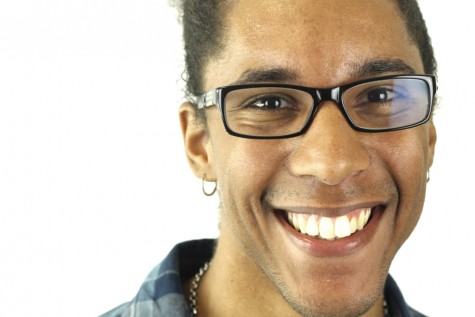Study Abroad deals with lacking enrollment
February 26, 2015
The student participation in study abroad has been on the steady decline because of Eastern’s enrollment decrease for the last four years.
Currently, the Study Abroad Office has 188 students participating in the program, which is the lowest it has been in 10 years.
Kurt Olausen, the director of study abroad, said he took over the office seven months ago from Evan Lohmann, who Olausen gives much of his credit too.
Olausen said when he took the job, people were open about the study abroad enrollment numbers.
He said enrollment is definitely one of the big factors for the program decline, but not the only factor.
Olausen said some families may see studying abroad as an “extra” benefit to going to a university, not knowing students can get actual credit for the trips.
Eastern saw 8,214 students enrolled this spring, which is a decrease of nearly 700 students from the 8,913 enrolled in fall 2014.
Olausen said he believes one of the factors could be because issues with the housing market in 2008 complicated the economy.
“That economic downturn hurt a lot of universities nationally,” he said.
In 2008, Eastern began to see a decrease in its study abroad program with 265 participants, but saw an increase by 70 the following year.
Olausen, who previously worked at the University of Cincinnati, said when the U.S. economy began to sink, many people were losing their jobs, and he had students come to him pulling out of their study abroad program because their parents were becoming unemployed.
The University of Cincinnati, which has about 43,000 students, went through a similar experience with its study abroad enrollment numbers during that time for about two to three years, Olausen said.
In 2008, the housing market took a nearly 30 percent dive in prices, according to Forbes’ website.
“The fear lingered for a little bit,” Olausen said.
Award money and grants may not necessarily be an issue for the program because the office usually uses all the money it is allocated.
Olausen said for spring 2015, which includes fall semester and spring break programs, the office was awarded $14,350.26.
The participants used all but $1,150, so the remaining was returned. For faculty-led summer programs, the office was awarded $26,868.75, nearly all of which was accepted except $325.
However, 16 faculty-led trips were planned, but six have been canceled.
In total, $66,051 was used in scholarship application and award money, which covers study abroad grants from the office, merit scholarships, endowed scholarships and tuition exchange waivers.
Olausen said one of the issues he struggles with alongside enrollment in his programs is deciding how much and to whom to award the funds to because of a finite amount of money available.
He said he can never decide if he should give the largest amount to a small group of students, or just the opposite, a small amount to a large group of students, which is what he always chooses.
Olausen said what he looks at it the rate of return when it comes to funds. He said a minimum amount should be awarded to students who do not go under $250 because covering a passport is at least $150.
“In an ideal world, we’d be able to cover everyone’s airfare,” Olausen said, “The further you go, the more expensive it gets.”
Olausen said as of late, airfare has been on the decline, because when he looked at prices for a round trip to Germany, it was $950 and $889 to Ireland.
The top location Eastern students like to go for study abroad seems to be London, which Olausen assumes is because it is an English-speaking area. He said a lot of students are probably afraid to go somewhere where people are speaking a different language; however, he guarantees he can find a location that uses English.
“I can find you an English-speaking program any where in the world,” Olausen said. “Language is no longer the barrier it was 25 years ago.”
Despite the drop in student participation, Olausen said he as well as others within his office has had a larger presence on campus.
He said they have also reached out to students in their foundations courses to try to get as many freshman students interested in the program to begin thinking about it.
One of the ways they have been reaching out to others is by talking to professors in classrooms and advisers who students can team up with for a trip.
“Students will be a lot more willing to take the risk if someone they know will go with them,” Olausen said.
Roberto Hodge can be reached at 581-2812 or [email protected].

















































